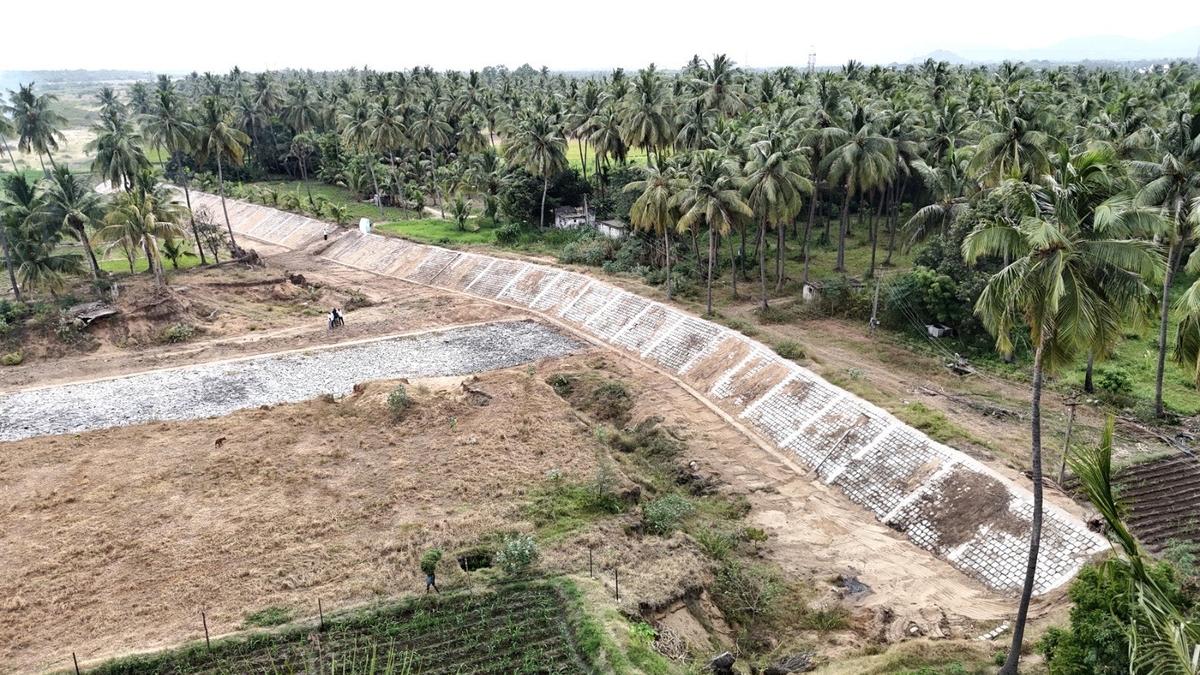
A training session for B.Ed. students in progress.
| Photo Credit: Special Arrangement
The Bharatiya Janata Party government in Delhi has pushed for the implementation of the National Education Policy 2020, which emphasises the study of Indian knowledge systems (IKS) in schools. This has led to the State Council of Educational Research and Training (SCERT), Delhi, to become “more focused” on training its B.Ed. students on integrating IKS into their lesson plans, said Professor Abha Sharma, Principal, SCERT’s B.Ed. Division.
“We had been trying to integrate it [IKS training in the two-year B.Ed. programme] for the past couple of years. But it became possible only after a push by the new government in Delhi to implement the NEP,” Prof. Sharma told The Hindu.
She added that the training is aimed at teaching “things that are not necessarily taught in books, in an attempt to create global teachers with 21st-century skills”. As an example, she cites a popular claim in India, “We have always been taught that the Wright brothers flew the first aircraft. But the first aircraft was actually flown in India by Bapuji Talpade in Mumbai in 1895, eight years before the Wright brothers.”
‘Chemicals in Mahabharata’
As part of the IKS training, the B.Ed. students are also being taught about how Sushruta performed an eye surgery as far back as the 6th century and how certain chemicals are mention in the Hindu epic, the Mahabharata. The budding teachers are expected to use their training while teaching their respective subjects at schools to help “students learn more about India’s culture”.
Prof. Sharma said that they began placing a greater emphasis on IKS training for the 2023-2025 batch, which graduated recently. “We will now do it more comprehensively for the newer batches. The students will be trained on how to make their pedagogy plans using the pancha kosha philosophy,” she added. The concept of ‘pancha kosha (five layers)’ of consciousness has its origins in the Upanishads.
The NEP, which aims to integrate IKS in all levels of education, states, “The rich heritage of ancient and eternal Indian knowledge and thought has been a guiding light for this policy. The pursuit of knowledge (jnan), wisdom (pragya), and truth (satya) was always considered in Indian thought and philosophy as the highest human goal.”
‘Will use it in school’
Koushiki Chatterjee, who specialises in chemistry and was part of the B.Ed. batch that just passed out said, “In the Mahabharata, Arjuna used certain chemicals as make-up to disguise himself as a woman. While teaching chemistry during an internship, I mentioned it to my students.”
Deepali, a second-year B.Ed student who will be teaching at a school in August as part of her internship, said, “While teaching chemistry, I can teach students about the states of matter, and how ice melts, while touching upon the concept of annamaya kosha (the outer physical layer of the body, which is one of pancha koshas).” “Pranamaya kosha (energy layer) comes into play when I am teaching students about how liquid changes to gas, as there is a transfer of energy,” she added.
Similarly, Ms. Deepali said she will employ the concept of anandamaya kosha (the spiritual level) when asking students “to reflect on where they see chemistry in their daily lives”.
Published – July 21, 2025 01:09 am IST



